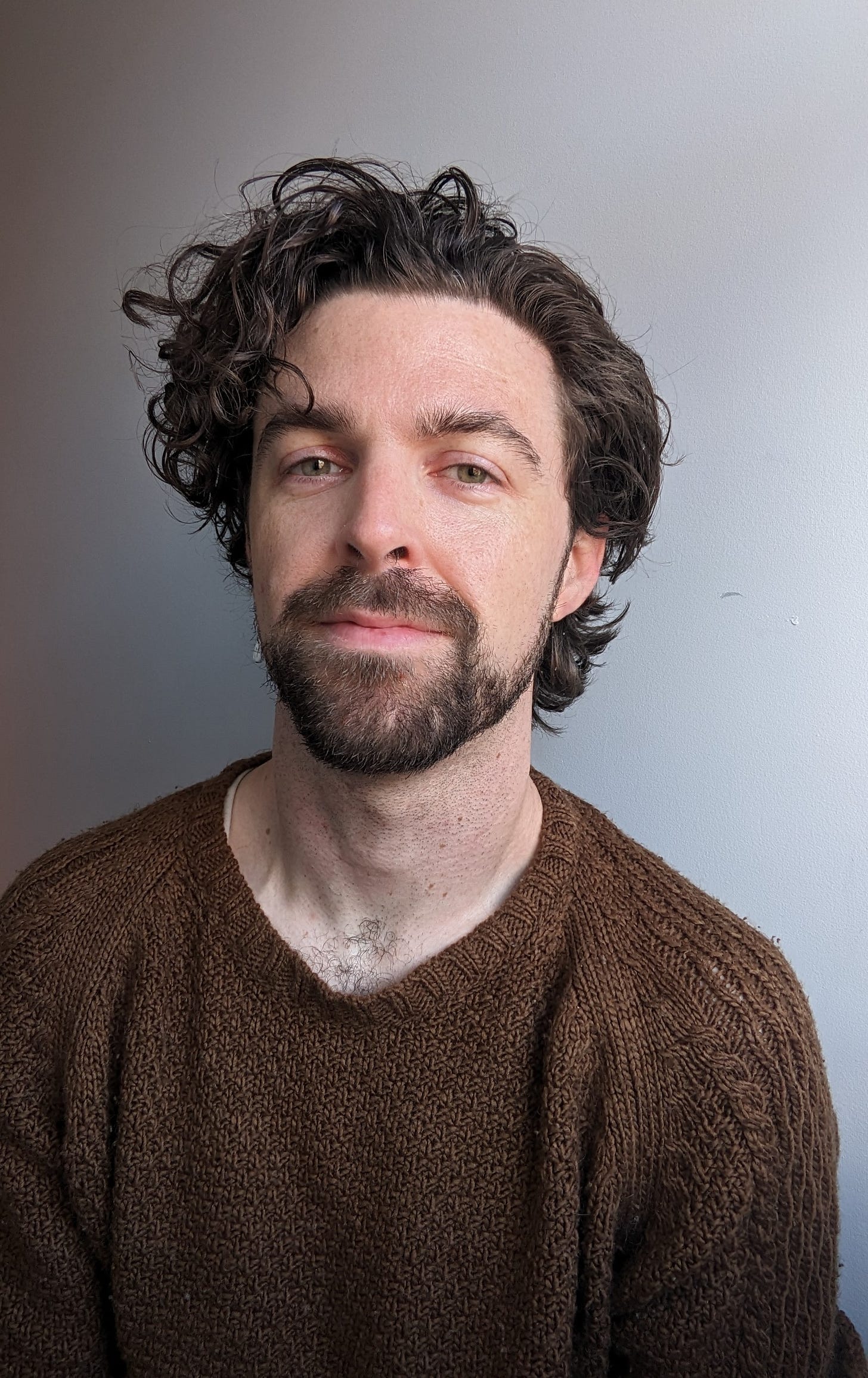Meet the Poets: William Summay
Will talks to us about his writing practice, his favourite songs, and his choice of the Vietnamese lục bát form for his Issue One poem
You can read Will’s poem “Homosexual Commitment Issues While Hundreds Of Elk Die In Wyoming”, and listen to Will read it himself, in Issue One of the Seaford Review.
What can you tell us about this poem?
I recently stumbled upon a 2004 article talking about how 400-500 elk in Wyoming ate lichen with too much acid in it and died, and around the same time I found this article I was reflecting on a relationship with someone from years ago who was in conflict with his feelings about him and me. In honour of this guy, I found a Vietnamese poetic form called the lục bát (“six-eight”) which is a complex form that is strict in its syllabic, rhyme, and tonal scheme. When it is used in English it loses its tonal beauty, which felt so appropriate in a poem that is so much about deterioration to use a form that in its own way deteriorates when translated to another language. And the rhyme scheme itself even has its own sense of descent or cascading that fit the theme as well. The poem is devoted to situating us humans as moments a part of the ecological cycles of life with the rest of nature, and how there is some sense of cosmic comfort in our transcendence, or spiritual existences, that lies in being-toward-oneness with nature despite of our oftentimes trivial anthropocentric endeavors and worries.
What poets and poems are you in dialogue with?
This particular poem is most certainly in dialogue with Brian Teare’s Doomstead Days which is a brilliant eco-poetical work that centres the queer perspective. I am always writing with Kaveh Akbar in mind, particularly his book Pilgrim Bell, because of his masterful skill on writing the most human form of spirituality I have ever read that often influences all of my work.
What is your writing practice? Where and when do you write? By hand, laptop, phone notes?
I start by writing by hand in my journal and the page(s) often look chaotic and nonsensical, but I need to feel the poem in my body first, then I write it in a Google Doc to see it in a clean format, then I write it back in my journal, and so on. It depends on the poem, but my craft is often a feedback loop between body (hand writing) and mind (structuring and visualising through typing into my computer).
What drew you to writing poetry?
As a teenager it was catharsis. But as an adult I am drawn to poetry as an exercise of surrender. Louis Gluck once wrote “the fundamental experience of the writer is helplessness... it is a life dignified by yearning.” I am captivated by the way poetry demands so much of a connection to the helplessness of desire and relinquishing my self to a process of uncertainty and bewilderment.
Louis Gluck once wrote “the fundamental experience of the writer is helplessness... it is a life dignified by yearning.”
What song helps us get to know you better?
I think my whole personality can be summed up in the following playlist: Habibi by Tamino; Limbo by Lissom, Julien Marchal, & Lowswimmer; Ниточка в голове by Synecdoche Montauk; and Joga by Björk.




